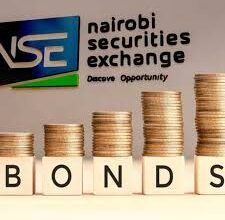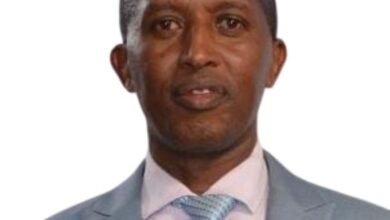
Nigeria is witnessing renewed investor confidence, pushing stock markets higher and lowering bond yields as economic reforms take effect.
The country’s sovereign risk spread has dropped to its lowest level since January 2020, erasing the pandemic-driven premium. Meanwhile, the NGX All Share Index has surged 11% since December 2, significantly outperforming the MSCI developing-world equities gauge.
While global emerging markets face volatility, Nigeria has remained resilient, drawing foreign capital thanks to key economic reforms. These include improved currency liquidity, greater ease for investors to repatriate profits, and the stabilization of the naira.
“Nigeria appears to be back in business as long-awaited economic reforms take shape,” said Emre Akcakmak, portfolio manager at East Capital. The Central Bank of Nigeria (CBN) has taken measures to prevent sharp naira appreciation, curbing speculative trading while maintaining confidence in the local currency.
Central Bank’s Role in Stabilization
The CBN is expected to keep interest rates at 27.5% in its upcoming monetary policy announcement. In 2023, it aggressively raised borrowing costs to curb inflation and stabilize the naira after President Bola Tinubu eased its peg against the dollar, leading to a 70% devaluation.
Also Read: Nigeria Secures $2.2B in First Eurobond Issue Since 2022
Since then, CBN’s liquidity-enhancing steps have helped the naira remain within a 1,470-1,550 range per dollar since early December.
These reforms are now bearing fruit, attracting foreign portfolio inflows.
Samir Gadio, head of Africa strategy at Standard Chartered Plc, pointed out Nigeria’s improved FX market functioning, moderating dollar-naira volatility, and high nominal yield buffer as key factors supporting investor confidence. Nigeria’s local market is also seen as less correlated with global risk conditions compared to other emerging markets.
Bonds and Debt Market Performance
Nigeria’s $1.5 billion eurobond due in 2034 saw its yield decline to 9.69%, its lowest level since early December. Meanwhile, a recent domestic debt auction was three times oversubscribed, with Open Market Operation (OMO) bills allotted at 21.45% versus 22.65% previously.
Governor Olayemi Cardoso has played a crucial role in stabilizing Nigeria’s economy by raising borrowing costs 875 basis points since September 2023, clearing a backlog of dollar purchase orders, and leveraging OMO auctions to mop up excess liquidity.
“We are bullish on the Nigerian reform story,” analysts at Citigroup Inc. said, citing growing foreign portfolio investment inflows and increased investor confidence.





